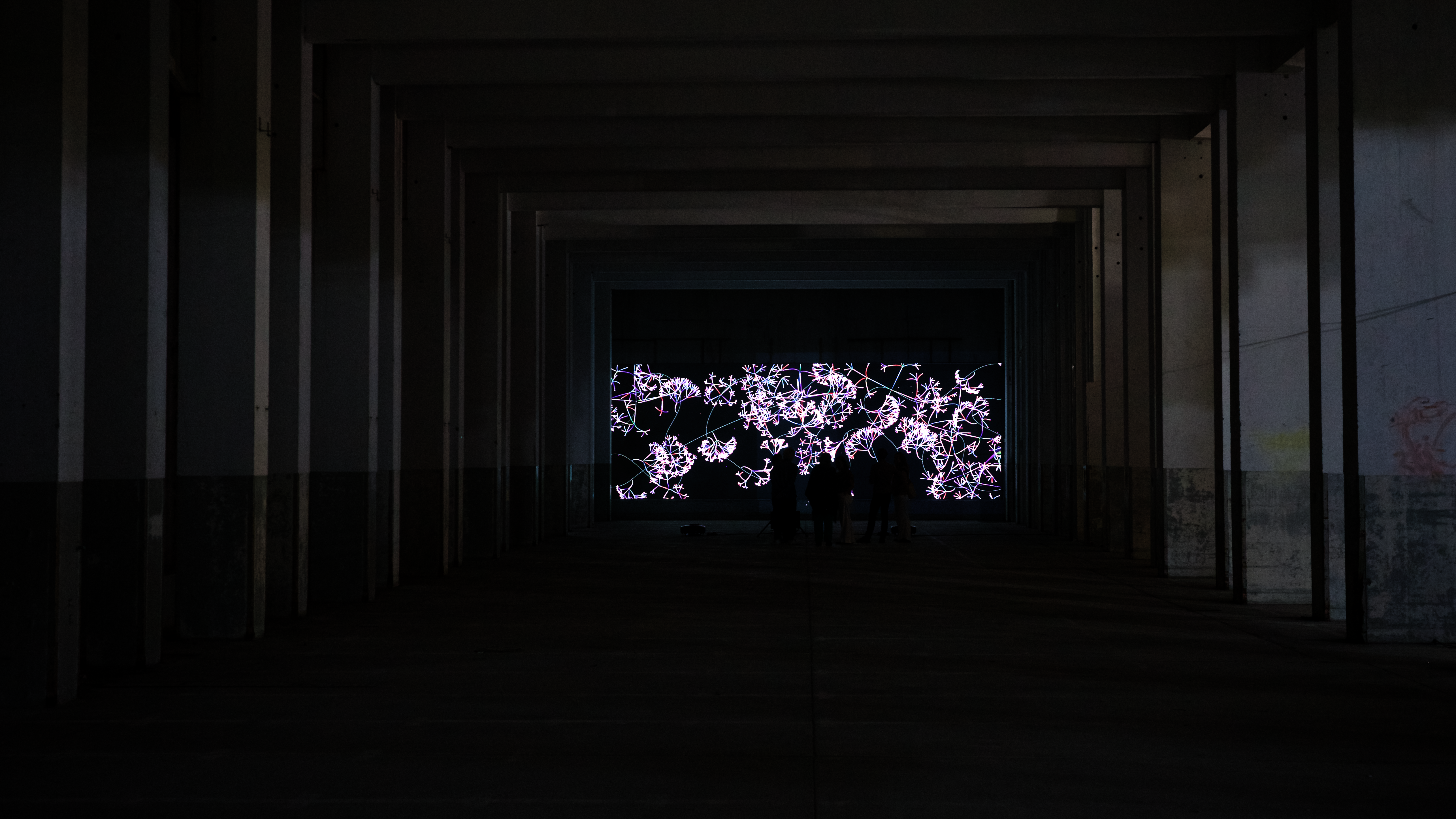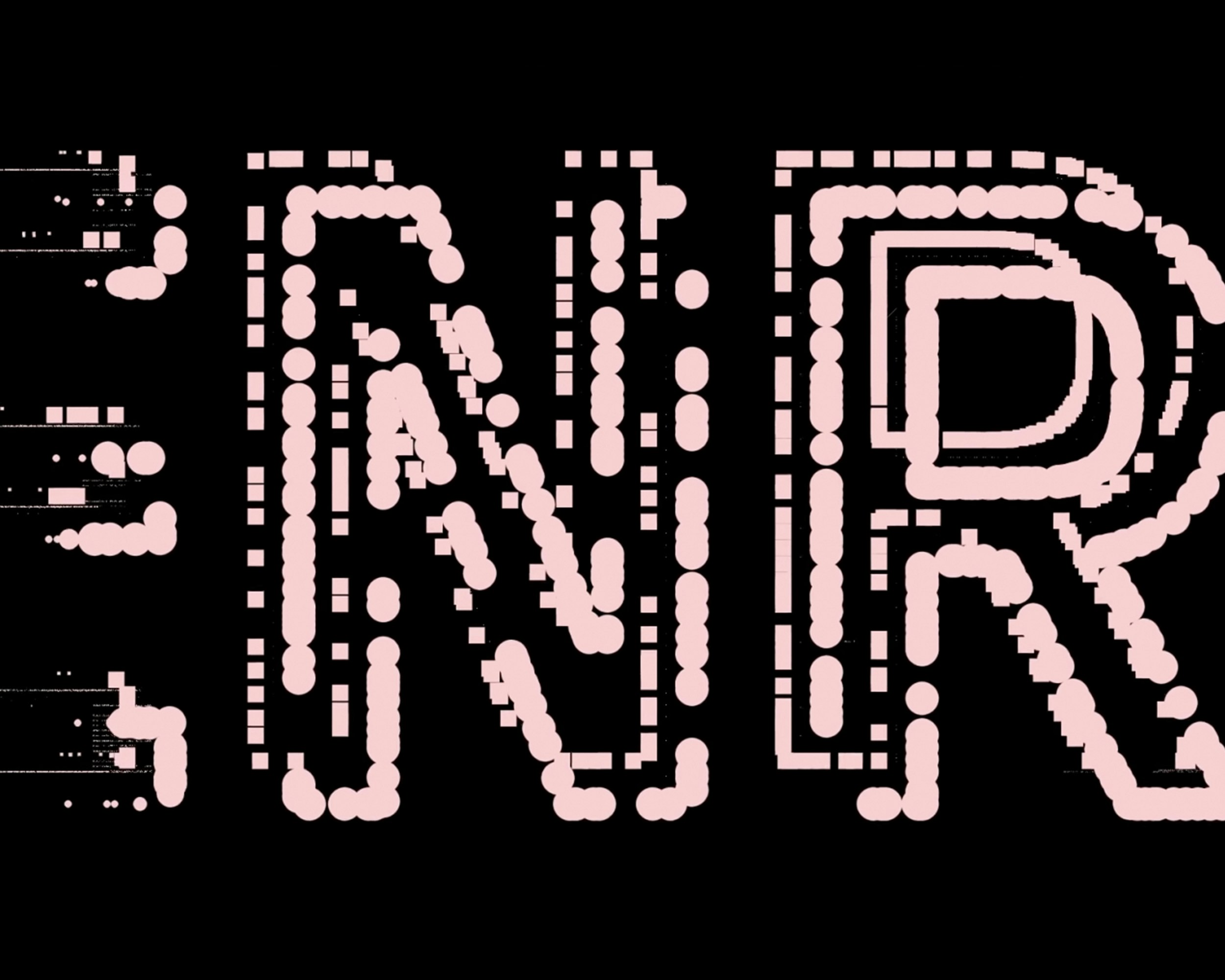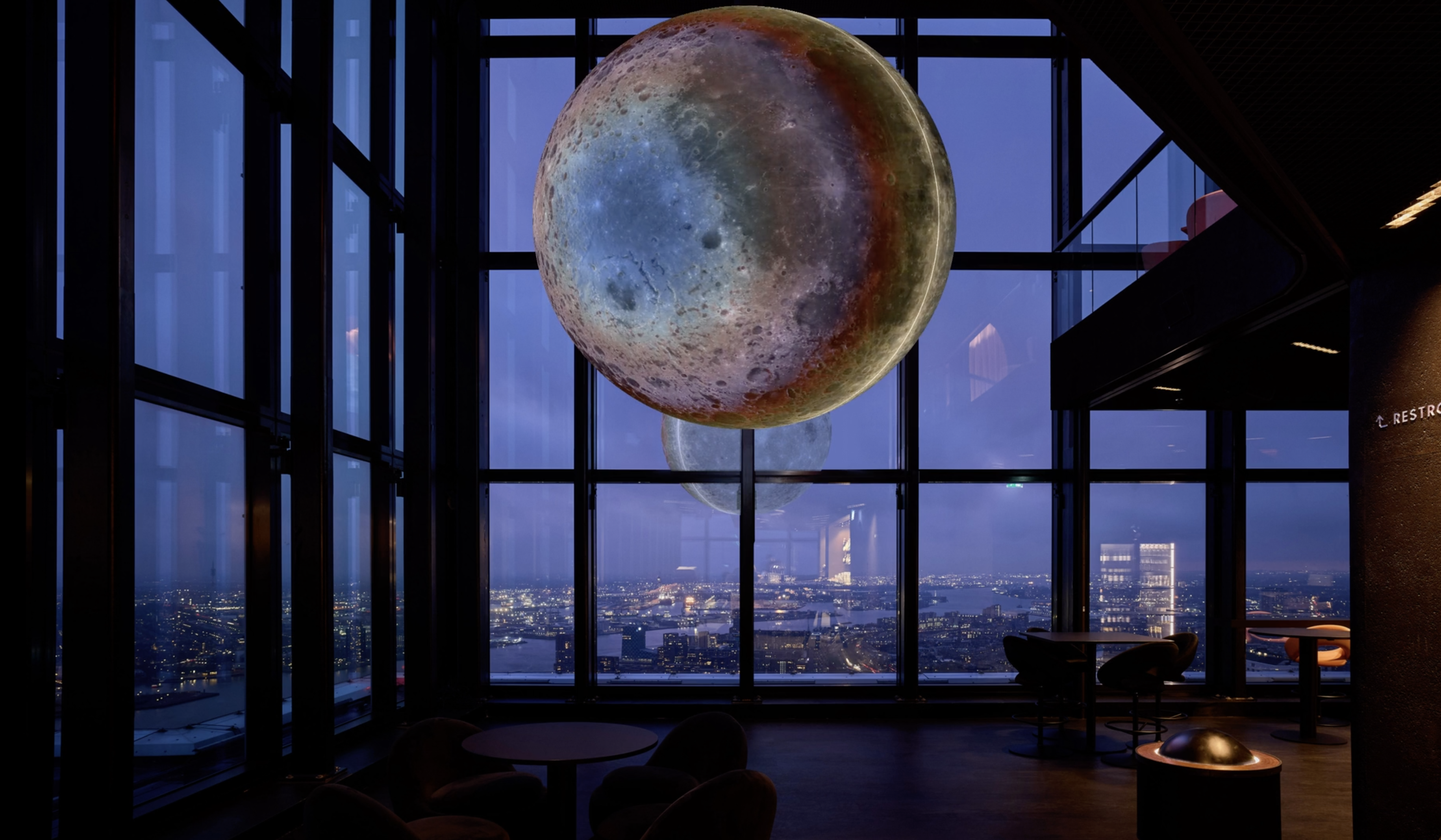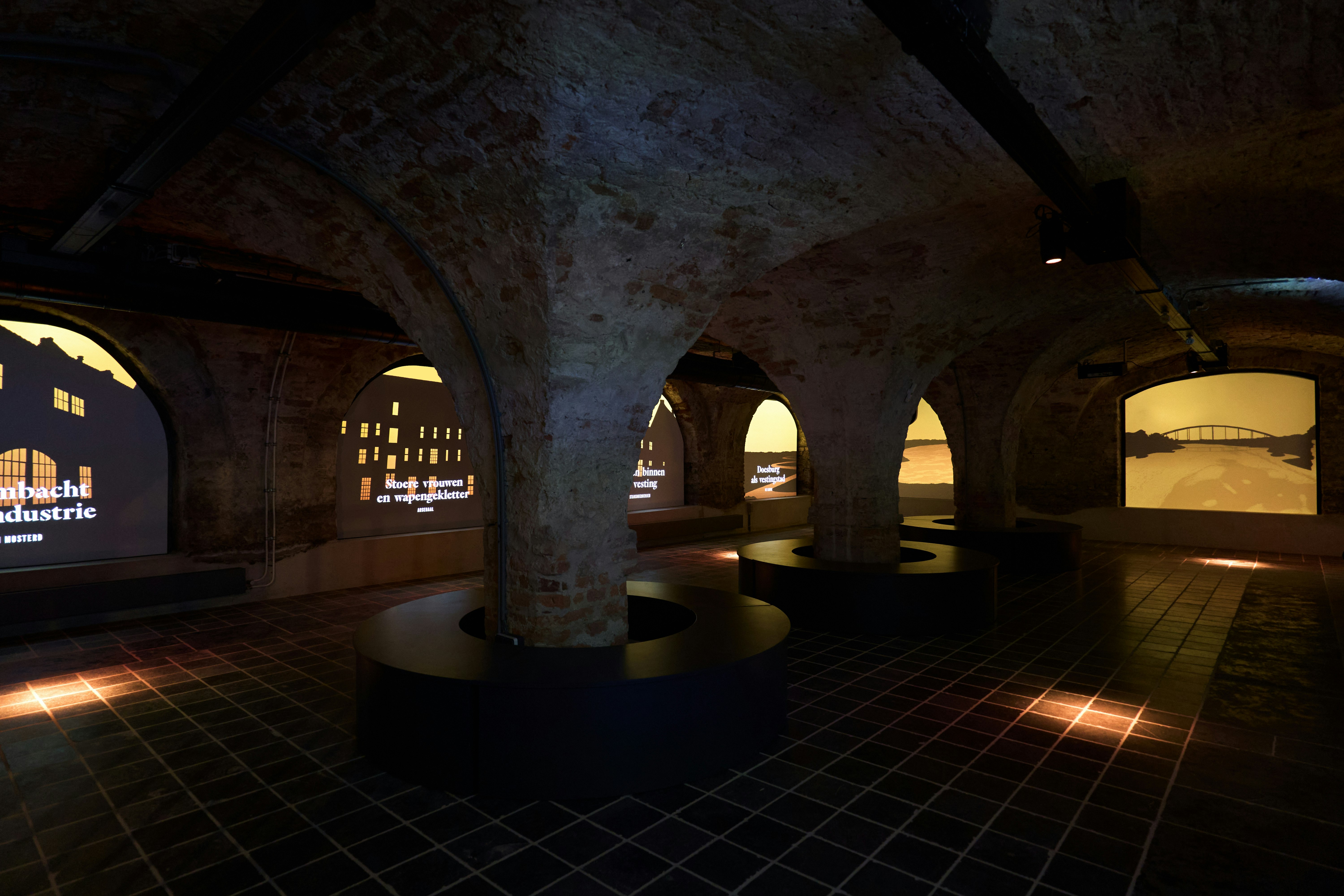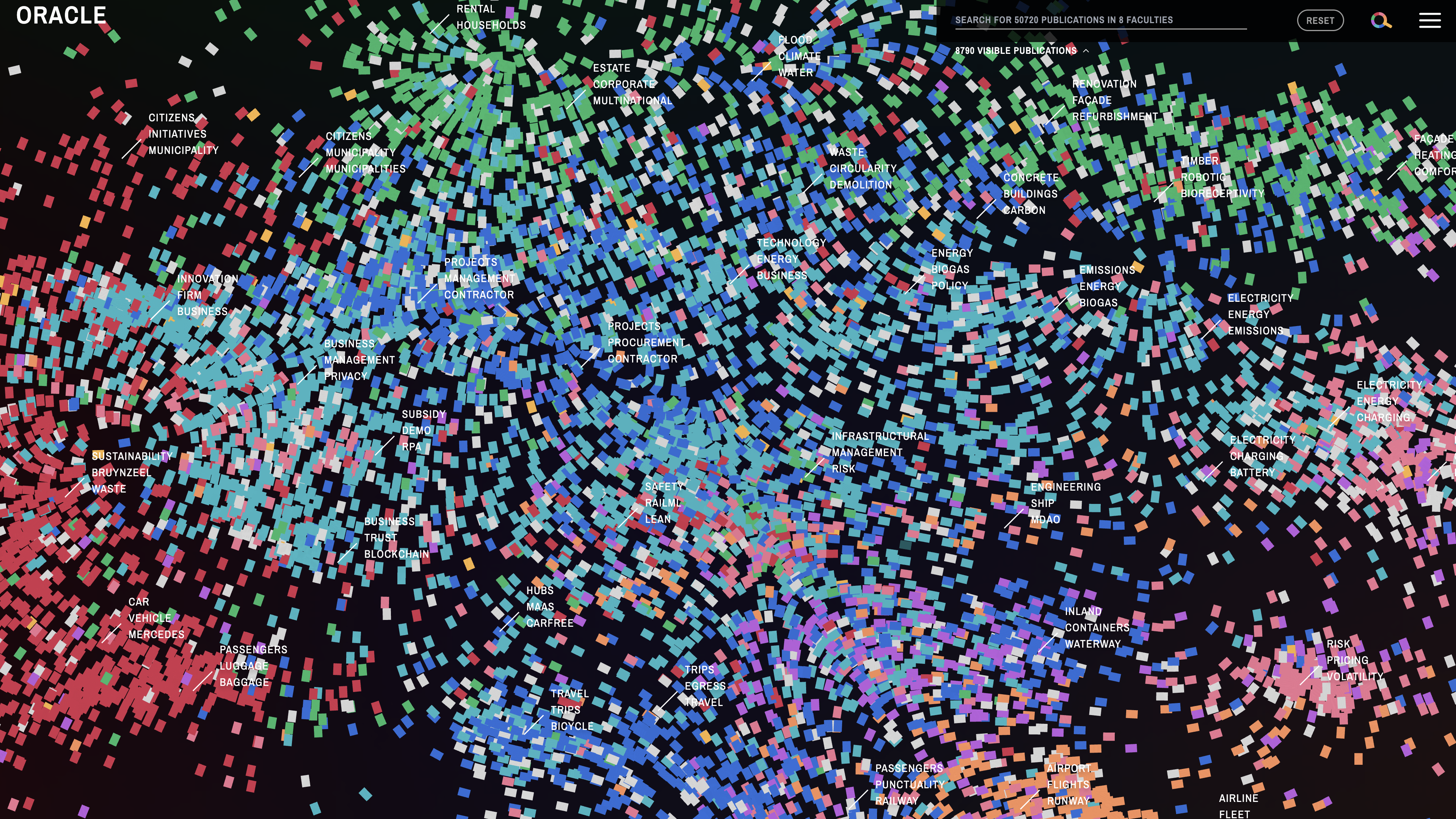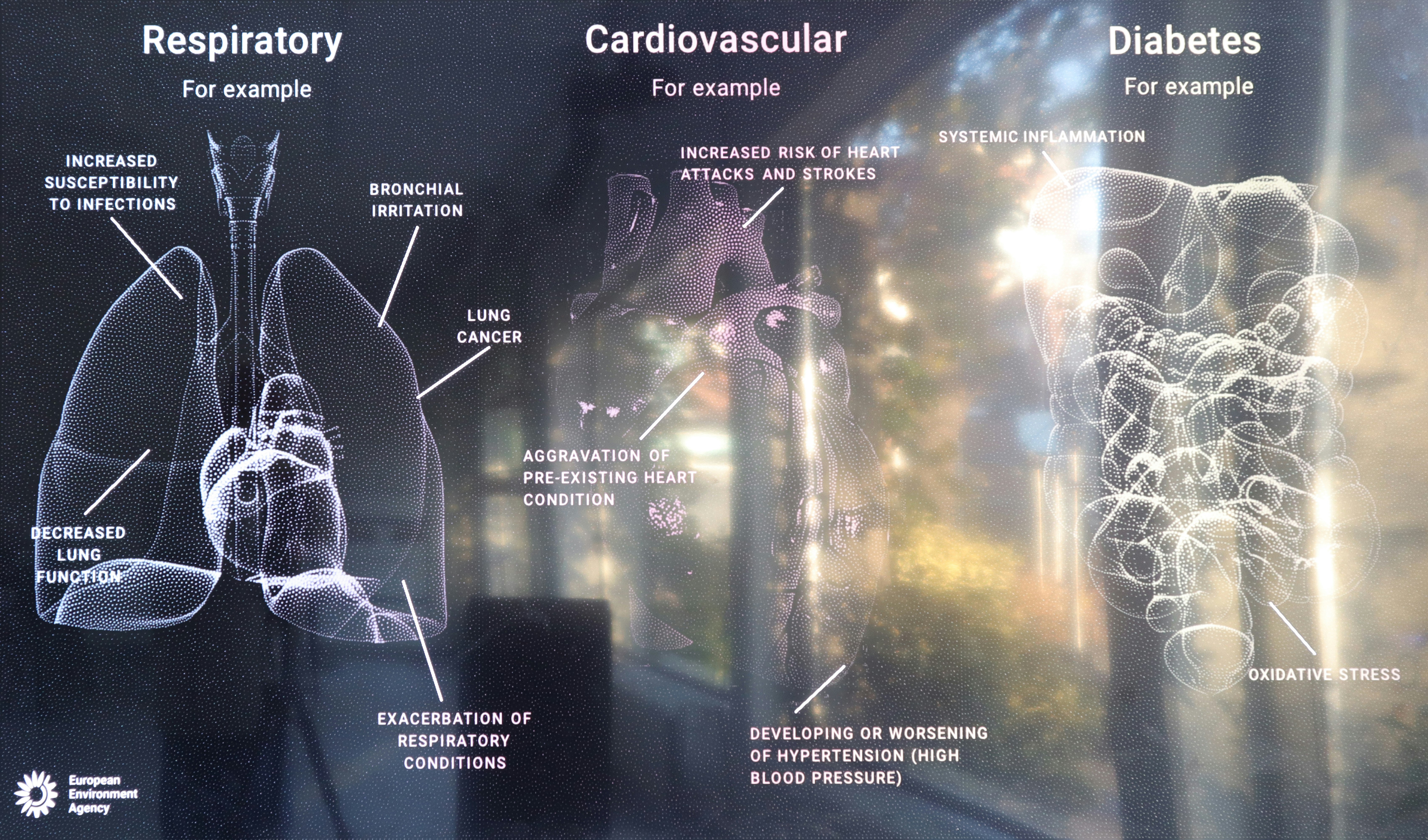The closer countries are to each other, the more similarities. In order to be able to focus on factors that determine what might make a good government, the indicators Population size and Surface area can be deselected.
In this datavisualisation tool for the World Government Summit in Dubai 2019, the countries will re-arrange according to inter-country similarity of the selected indicators. The indicators are grouped in 6 main categories (for example Health, Happiness, etc) with subcategories and can be coloured along 32 themes.
For generating the maps we used t-Distributed Stochastic Neighbor Embedding (t-SNE) algorithms. Special thanks go to lejon for his Barnes Hut Java implementation.
Spokes diagrams
Next to the tool we also explored other visualization possibilities with this data, which resulted in a visualiztion in which 195 countries are arranged by inter-country similarity of qualities.
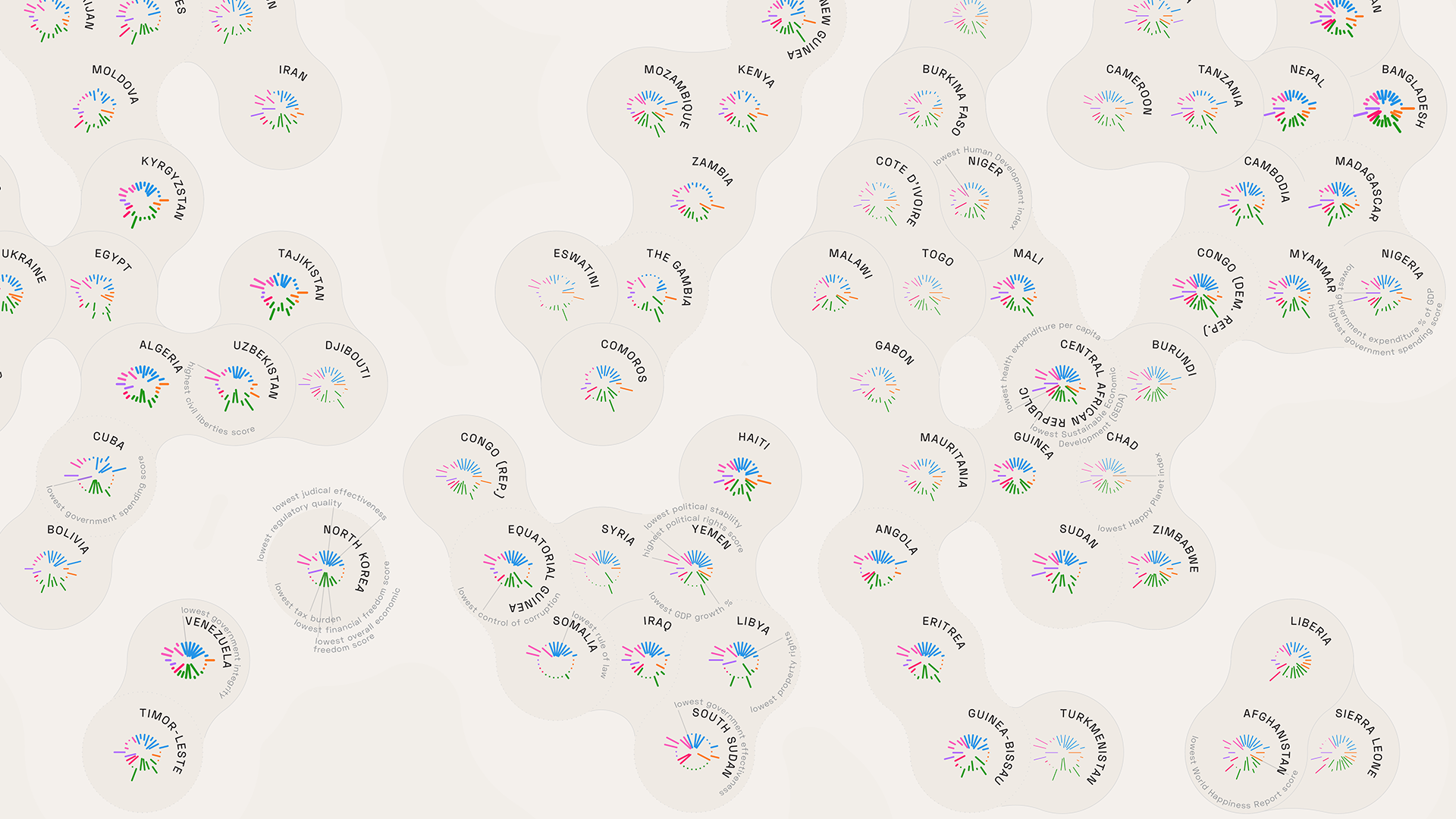 Detail, arrangement of 195 countries based on similarity of qualities, each quality is visualized using a spokes diagram
Detail, arrangement of 195 countries based on similarity of qualities, each quality is visualized using a spokes diagram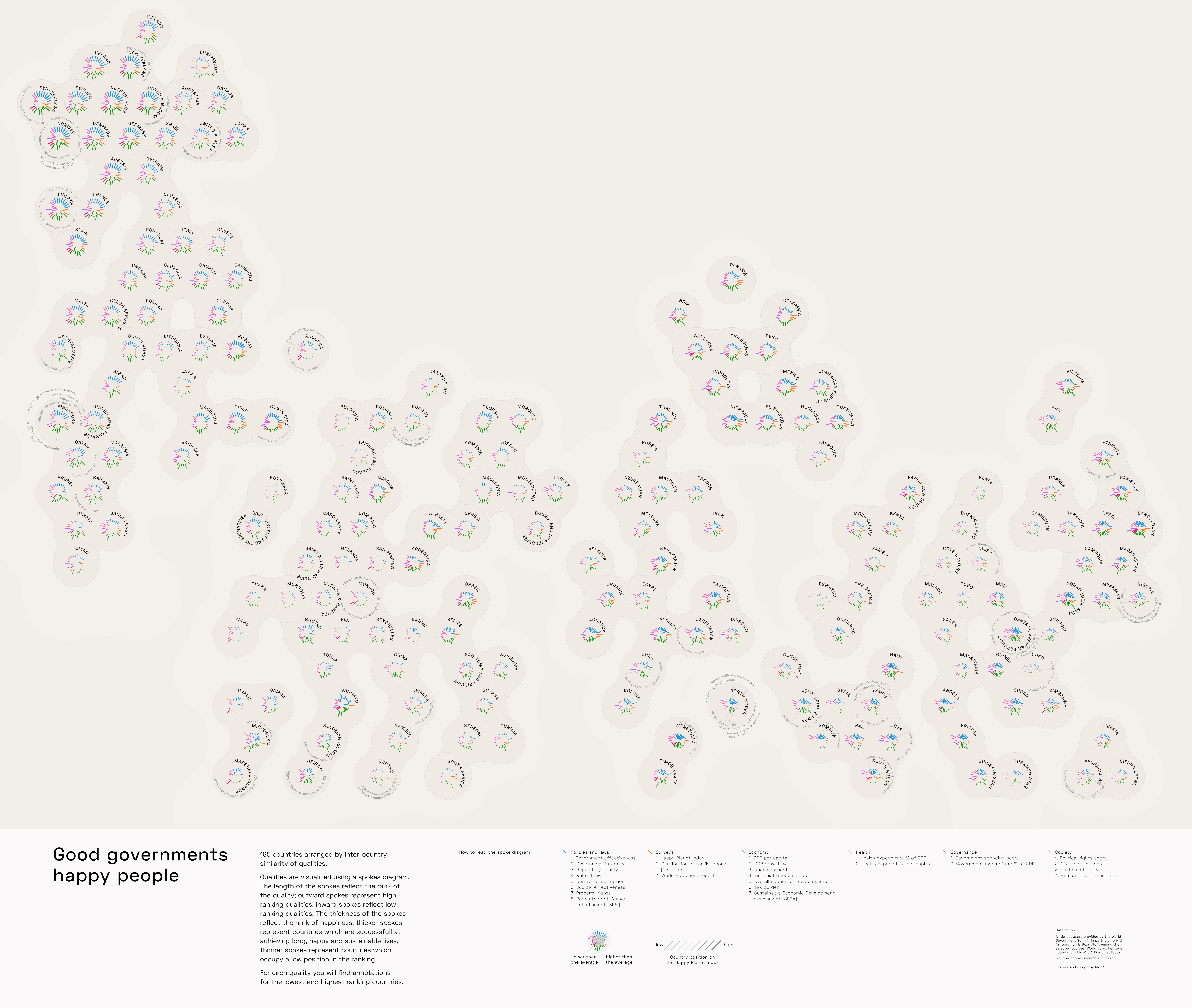 Arrangement of 195 countries based on similarity of qualities, each quality is visualized using a spokes diagram
Arrangement of 195 countries based on similarity of qualities, each quality is visualized using a spokes diagram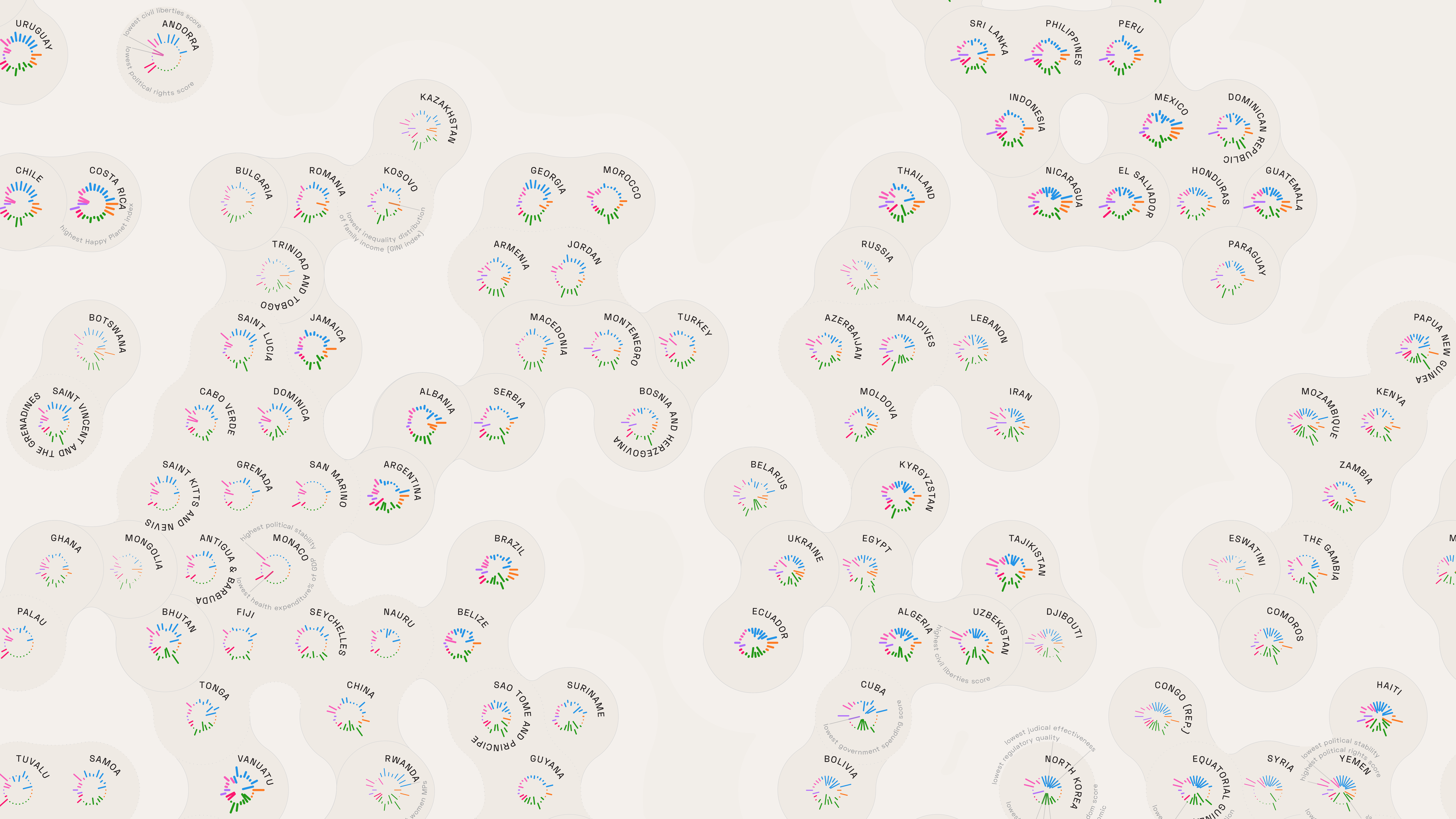 Detail, arrangement of 195 countries based on similarity of qualities, each quality is visualized using a spokes diagram
Detail, arrangement of 195 countries based on similarity of qualities, each quality is visualized using a spokes diagram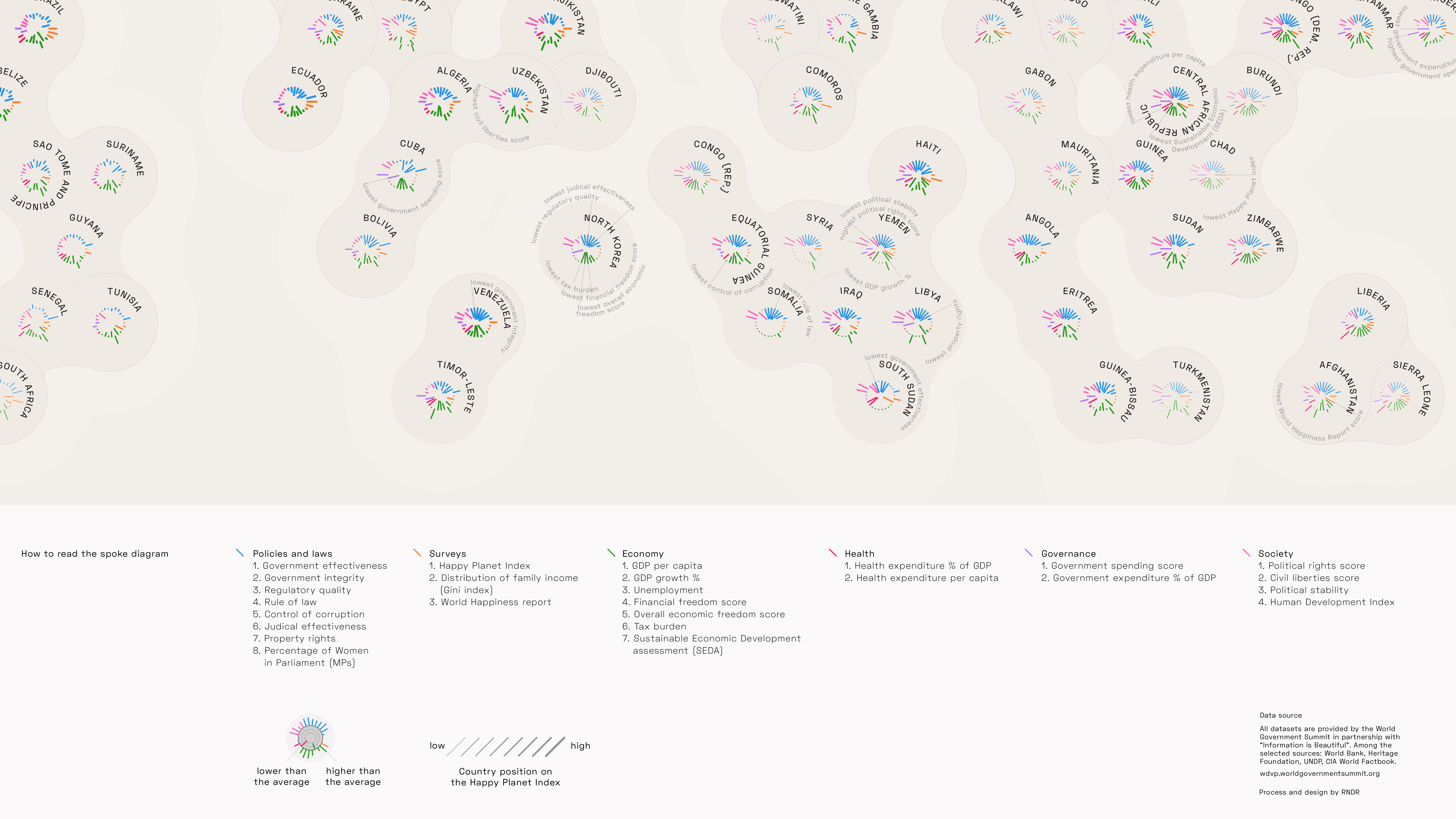 Detail, arrangement of 195 countries based on similarity of qualities, each quality is visualized using a spokes diagram
Detail, arrangement of 195 countries based on similarity of qualities, each quality is visualized using a spokes diagram Detail, arrangement of 195 countries based on similarity of qualities, each quality is visualized using a spokes diagram
Detail, arrangement of 195 countries based on similarity of qualities, each quality is visualized using a spokes diagram Arrangement of 195 countries based on similarity of qualities, each quality is visualized using a spokes diagram
Arrangement of 195 countries based on similarity of qualities, each quality is visualized using a spokes diagram Detail, arrangement of 195 countries based on similarity of qualities, each quality is visualized using a spokes diagram
Detail, arrangement of 195 countries based on similarity of qualities, each quality is visualized using a spokes diagram Detail, arrangement of 195 countries based on similarity of qualities, each quality is visualized using a spokes diagram
Detail, arrangement of 195 countries based on similarity of qualities, each quality is visualized using a spokes diagram Detail, arrangement of 195 countries based on similarity of qualities, each quality is visualized using a spokes diagram
Detail, arrangement of 195 countries based on similarity of qualities, each quality is visualized using a spokes diagram Arrangement of 195 countries based on similarity of qualities, each quality is visualized using a spokes diagram
Arrangement of 195 countries based on similarity of qualities, each quality is visualized using a spokes diagram Detail, arrangement of 195 countries based on similarity of qualities, each quality is visualized using a spokes diagram
Detail, arrangement of 195 countries based on similarity of qualities, each quality is visualized using a spokes diagram Detail, arrangement of 195 countries based on similarity of qualities, each quality is visualized using a spokes diagram
Detail, arrangement of 195 countries based on similarity of qualities, each quality is visualized using a spokes diagram Detail, arrangement of 195 countries based on similarity of qualities, each quality is visualized using a spokes diagram
Detail, arrangement of 195 countries based on similarity of qualities, each quality is visualized using a spokes diagram Arrangement of 195 countries based on similarity of qualities, each quality is visualized using a spokes diagram
Arrangement of 195 countries based on similarity of qualities, each quality is visualized using a spokes diagram Detail, arrangement of 195 countries based on similarity of qualities, each quality is visualized using a spokes diagram
Detail, arrangement of 195 countries based on similarity of qualities, each quality is visualized using a spokes diagram Detail, arrangement of 195 countries based on similarity of qualities, each quality is visualized using a spokes diagram
Detail, arrangement of 195 countries based on similarity of qualities, each quality is visualized using a spokes diagram Detail, arrangement of 195 countries based on similarity of qualities, each quality is visualized using a spokes diagram
Detail, arrangement of 195 countries based on similarity of qualities, each quality is visualized using a spokes diagram Arrangement of 195 countries based on similarity of qualities, each quality is visualized using a spokes diagram
Arrangement of 195 countries based on similarity of qualities, each quality is visualized using a spokes diagram Detail, arrangement of 195 countries based on similarity of qualities, each quality is visualized using a spokes diagram
Detail, arrangement of 195 countries based on similarity of qualities, each quality is visualized using a spokes diagram Detail, arrangement of 195 countries based on similarity of qualities, each quality is visualized using a spokes diagram
Detail, arrangement of 195 countries based on similarity of qualities, each quality is visualized using a spokes diagram Detail, arrangement of 195 countries based on similarity of qualities, each quality is visualized using a spokes diagram
Detail, arrangement of 195 countries based on similarity of qualities, each quality is visualized using a spokes diagram Arrangement of 195 countries based on similarity of qualities, each quality is visualized using a spokes diagram
Arrangement of 195 countries based on similarity of qualities, each quality is visualized using a spokes diagram Detail, arrangement of 195 countries based on similarity of qualities, each quality is visualized using a spokes diagram
Detail, arrangement of 195 countries based on similarity of qualities, each quality is visualized using a spokes diagram Detail, arrangement of 195 countries based on similarity of qualities, each quality is visualized using a spokes diagram
Detail, arrangement of 195 countries based on similarity of qualities, each quality is visualized using a spokes diagram Detail, arrangement of 195 countries based on similarity of qualities, each quality is visualized using a spokes diagram
Detail, arrangement of 195 countries based on similarity of qualities, each quality is visualized using a spokes diagram Arrangement of 195 countries based on similarity of qualities, each quality is visualized using a spokes diagram
Arrangement of 195 countries based on similarity of qualities, each quality is visualized using a spokes diagram Detail, arrangement of 195 countries based on similarity of qualities, each quality is visualized using a spokes diagram
Detail, arrangement of 195 countries based on similarity of qualities, each quality is visualized using a spokes diagram Detail, arrangement of 195 countries based on similarity of qualities, each quality is visualized using a spokes diagram
Detail, arrangement of 195 countries based on similarity of qualities, each quality is visualized using a spokes diagram
Qualities are visualized using a spokes diagram. The length of the spokes reflect the rank of the quality; outward spokes represent high ranking qualities, inward spokes reflect low ranking qualities.
For each quality you will find annotations for the lowest and highest ranking countries.
Studio
RNDR is a design studio for interactive media that develops ‘tools’ that are only finished by how they are used.
To achieve this, we develop processes, create structures, design visualisations, code programs, and create interactions. The end result can manifest itself across different media, ranging from interactive installations, data visualisations, generative identities, prints and everything in between – often real-time. We are triggered by how information and technology transforms networks, cultures, societies, relationships, behaviours, and interactions between people. Our work explores and engages with hybrid space as it embraces both digital and physical realms.
RNDR was founded in 2017 in The Hague, (NL). Its main members have years of experience as partners, computer scientists, designers, art directors and developers at LUST and LUSTlab.
One of our core projects, and basis for most of our projects, is OPENRNDR, an open source framework for creative coding –written in Kotlin for the JVM– with over 13 years of development. OPENRNDR simplifies writing real-time audio-visual interactive software. OPENRNDR is fundamental for the capacity of RNDR as a studio, as it allows us to realize complex interactive works. OPENRNDR was awarded the Dutch Design Award 2019.
Fields of work
Interactive design (ui/ux), data visualisation, information systems, software tools, interactive installations, media architecture, immersive experiences, interface design, visual identities, generative video, creative coding, exhibition design, graphic design systems, hybrid spaces and platforms, machine learning and artificial intelligence (ai), code and design workshops.
We have worked for or collaborated with
Philips, Audi, Massive Attack, Internet Archive, Foto Museum, Autostadt, Stedelijk Museum Amsterdam, DropCity, Google, MoMA New York, IABR, VNG, DoepelStrijkers Architects, Kaan Architects, Buchmesse Frankfurt, European Environment Agency, PARC, Government Summit Dubai, RAP, Technical University Twente, Royal Holloway University, Paradox, Space10, Cooper Hewitt, Hammer Museum, Jacquemus, Holland Festival, RAUM, Civic Architects, The Municipality of The Hague, Vlisco, Police Emergency Center, KPN, Tod’s, Zegna, LI-MA, WTTC, Institute for Future Cities, Makropol, IDFA, UCLA, Artez Arnhem, Ministry of Internal Affairs, Digital Society School, Andrea Caputo Architects, Doesburg vertelt, Wellcome Trust, Ministry of Economic Affairs, NOI Tech Park, CELEST, Electric Castle, and many more.
Contact
RNDR
Paviljoensgracht 20
2512 BP, The Hague
+31 (0)70.3635776
INTERNSHIPS
Currently, we don’t have any open internship positions or job openings. We appreciate your interest, and we encourage you to check back with us in the future.
OPENRNDR
Open source framework for creative coding that simplifies writing real-time interactive software
